Hernia
What is a Hernia?
A hernia occurs when an internal part of the body, such as a portion of the intestine, protrudes through a weak area in the abdominal muscles. The most common types are inguinal hernia, umbilical hernia, and hernia after previous surgery, also known as incisional hernia, which typically appears in the groin area. Hernias can be present from birth or develop over time. If you’re looking for Best Hernia Surgeon in PCMC, understanding what a hernia is and how it’s treated is the first step. At Gandhi Nursing Home, we provide specialized care for various types of hernias.
- The person is unfit for Job/Govt. Services till he recieves treatment.
- If the part of the intestine is strangulated, it can be life-threatening.

Symptoms Of Inguinal Hernia :
Aching or scorching pain at the bulge. A bulge on either side of your pubic bone that is more noticeable when you’re standing up, particularly if you cough or strain Pain or discomfort in your groin, especially when bending over, coughing, or lifting. A heavy or dragging sensation in your groin. Weakness or pressure in your groin. Occasionally, the projecting intestine will descend into the scrotum and cause pain and swelling around the testicles.
Signs and Symptoms in Children
A weakening in the abdominal wall that exists at birth causes inguinal hernias in infants and young children. Sometimes the hernia won’t be apparent till the baby is crying, coughing, or struggling to go to the toilet. He or she might be irritable and have less appetite than usual.
In an older child, a hernia is likely to be more apparent when the child coughs, strains during a bowel movement, or stands for a long period.
When to see a Doctor
If a hernia bulge turns red, purple, or dark, or becomes very painful, seek emergency medical attention. Standing up will probably make the bulge more apparent, and if you put your hand exactly over the affected area, you can typically feel it.
When is Hernia Surgery Necessary?
Hernia surgery is typically recommended when:
- Pain and Discomfort: You experience persistent or increasing pain or discomfort.
- Visible Bulge: You notice a noticeable bulge in the groin or abdominal area.
- Risk of Complications: There is a risk of strangulation (when the protruding tissue becomes trapped and its blood supply is cut off), which can lead to severe complications.
Types of Hernia Surgery at Gandhi Nursing Home:
Open Hernia Repair:
- Description: Involves making a skin incision in the groin area to access and repair the hernia.
- Advantages: Allows for direct visualization and repair of the hernia. This can be done in regional anesthesia & cost-effective and minimal hospitalization
Laparoscopic Hernia Repair:
- Description: A minimally invasive procedure using several small incisions and a camera (laparoscope) to repair the hernia.
- Advantages: Minimal Scarring.
- Disadvantages:
- Operative time is prolonged.
- Most cases require general anesthesia.
- Cost is always on the higher side.
What to expect before hernia surgery:
Before the surgery, you’ll undergo evaluations, including physical exams and possibly imaging studies to assess the hernia’s size and location. Our surgeons will discuss the procedure, address any questions you may have, and provide detailed pre-operative instructions.
The day of Hernia surgery at Gandhi Nursing Home:
On the day of your surgery, you’ll receive anesthesia to ensure you are comfortable throughout the procedure. Our experienced surgeons will perform the hernia repair using the chosen surgical method, aiming for the best possible outcome.
Recovery and aftercare at Gandhi Nursing Home:
After the surgery, you’ll spend time in our recovery area. Most patients can go home the same day or the following day, depending on the type of surgery performed. Our team will provide clear postoperative care instructions, including guidelines on activity restrictions, medication, and follow-up appointments. For reliable and effective Best Hernia Surgeon in PCMC, Gandhi Nursing Home offers expert surgical care in a patient-centered environment. Trust our experienced team to guide you through every step of your treatment.
Why choose Gandhi Nursing Home for Hernia surgery?
Expert Surgeons:
- Our highly skilled and experienced surgeons specialize in hernia repairs, ensuring you receive top-notch care.
Patient-Centered Care:
- Your comfort and well-being are our priorities. We offer personalized care and dedicated support throughout your hernia treatment journey.
State-of-the-Art Facilities:
- Experience surgery in a modern, technologically advanced environment designed to enhance safety and optimize results.

